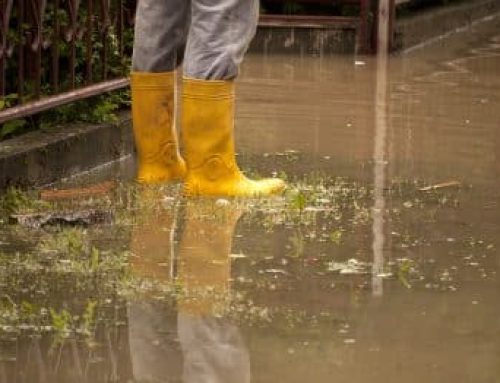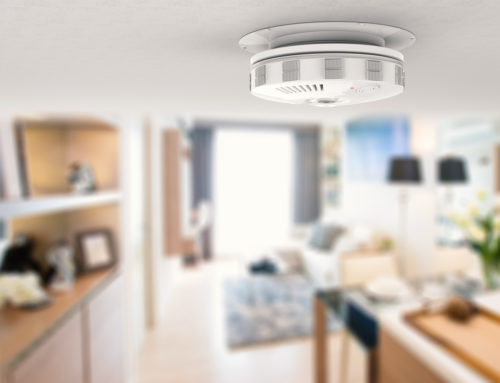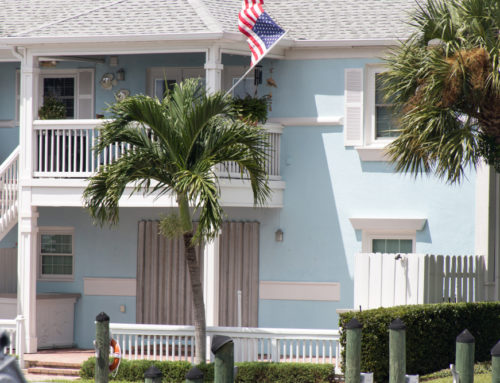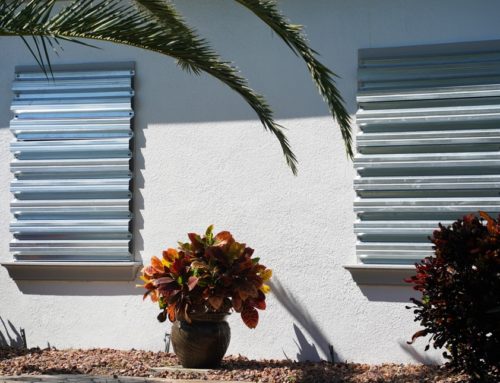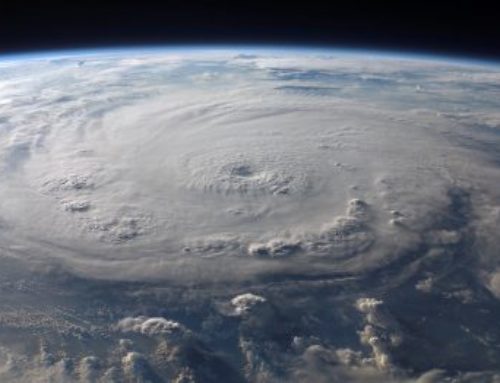As Benjamin Franklin is credited with saying, “If you fail to plan, you are planning to fail.” This is especially true when it comes to risk management. Many people think that they have created a bulletproof risk management strategy by incorporating or purchasing a robust set of insurance policies. But the fact is, incorporation doesn’t protect you from maintenance woes and insurance can’t – and doesn’t – cover everything that can go wrong at your property.
Taking responsibility for managing risk at your property will take some of your own sweat and muscle, but it may just make the difference between ending the year in the red or the black. So, what should you include in your risk management plan? To get your list started, focus on these key property maintenance tips for each season.
Spring
Spring brings new life, but it also brings thunderstorms.
1. Roof and Gutters
Check for damage to your roof and clean your gutters and downspouts. Replace cracked, buckled, or loose shingles, along with those missing any granules. Keep debris from accumulating in gutters, eliminate sags and dips, and be sure downspouts drain away from the foundation.
2. Trees
Remove dead trees from your yard, and trim healthy trees and bushes back from utility wires. Hire a licensed and insured professional to trim dead branches and cut down large trees. In addition to preventing damage to the house, a clean yard deters thieves.
3. HVAC
Have a professional inspect your air-conditioning system and clean the ducts. Give your AC a look before the pros are busy during the summer season. Check hoses for leaks, and make sure everything is draining properly. Clean or replace your HVAC filter on a monthly basis.
Summer
Summer is a time for fun in the sun and property maintenance. Be sure your tenants and their children have a safe place to play.
1. Decks
Inspect your deck and make any necessary repairs. Replace any broken or weak deck boards and inspect handrails and grab bars to prevent injuries from falls. Sharp edges, splintered or rotting wood, rusted nails, or nail pops can also be a liability hazard.
2. Pools
Bring swimming pools and spas up to current municipal standards. A safe pool has a fence around the perimeter with self-closing and self-latching gates, anti-entrapment drain covers, and the water depth is clearly marked on all sides of the pool deck. Plus, all safety equipment (life preservers, poles, etc.) are in good working condition. Check municipal guidelines for additional safety standards.
3. Grills
Remind tenants to inspect grills and make sure they are in good working condition. Check gas grills’ burner jets for clogs and obstructions and be sure that hoses are secure. Clean charcoal grills of ash, and make sure they are free of grease residue. Tenants should not use grills on wood decks, especially if they are covered!
Fall
Fall displays beautiful colors and creates plenty of chores. Start early to finish them all before the first frost!
1. Alarm Testing
Inspect smoke and carbon monoxide detectors. Make sure carbon monoxide and smoke detectors are installed on each floor of every one of your properties. They should be placed in each bedroom, main hallway, kitchen, and basement. Units should be tested monthly and should be replaced after 10 years of use. The end of Daylight-Saving time is perfect for changing both clocks and batteries in your detectors.
2. Heating
Give your furnace a tune-up. HVAC systems should be checked at least twice a year – before winter or summer arrive. Have the ducts professionally cleaned to prevent fires resulting from dust buildup. Furnace filters should be changed on a monthly basis.
3. Pests
Prevent bugs and rodents from entering your property. Seal or caulk cracks, gaps, or holes near baseboards, windows, and doors. Cable, plumbing, and electric service entry points should also have a tight seal. Any hole the size of a dime or larger may allow rodents to squeeze through.
Winter
Winter can be punishing on your property. Prudent preparation can get you through the season peacefully.
1. Plumbing
Winterize all water systems. Drain, disconnect, and store garden hoses. Install a faucet cover to help prevent outdoor faucets and any connected plumbing from freezing. Drain your sprinkler system and swimming pool pump. Turn off the water and fully drain the plumbing systems of any vacant properties.
2. Walkways
Repair cracked, broken, or uneven driveways, walkways, and stairs. The expansion and contraction caused by freezing and thawing can lead to significant damage to exterior walkways. If left unchecked, these hazards can cause slips and falls. Be sure you specify in your lease who is responsible for clearing walkways and driveways of ice and snow. You may even want to provide a shovel!
3. Holiday Cooking
Remind your tenants to use caution in the kitchen. Cooking is the leading cause of house fires. Never leave anything you are cooking unattended. Water spreads grease fires – put a lid on the pan to smother the fire or use a multi-purpose fire extinguisher. Keep potholders, clothing, and other flammable items away from open flames.
Develop your yearlong risk management plan now and take your real estate business to greater heights. The extra effort in property maintenance can keep your investment in good condition, your tenants happy, and your ROI high.


